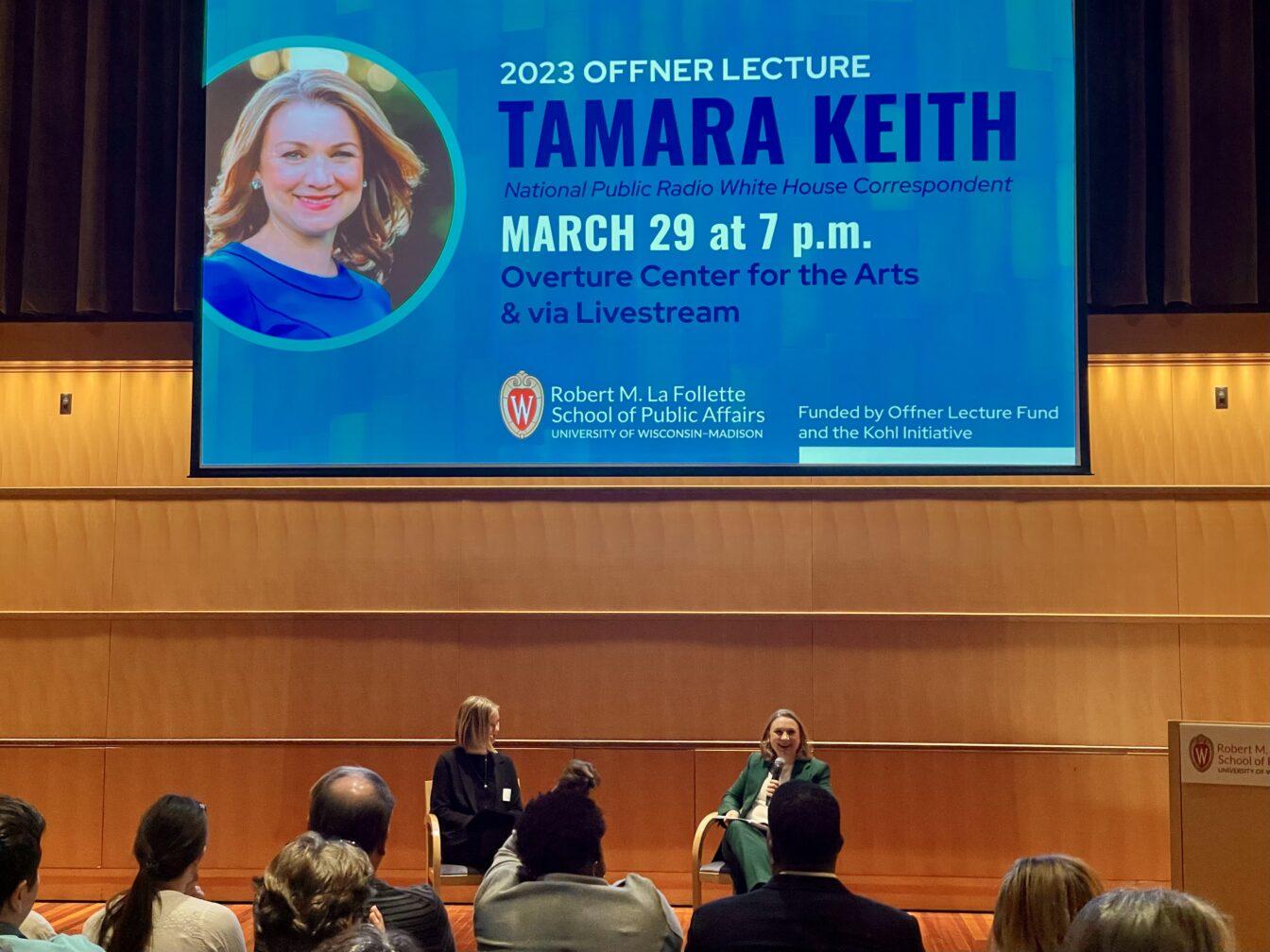National Public Radio White House Correspondent Tamara Keith presented the La Follette School of Public Affairs’ 2023 Paul Offner Lecture Wednesday night.
The lecture featured a presentation at the Overture Center on Americans’ diminishing trust in traditional media and the consequences of this on our democratic society.
Keith has been a White House Correspondent for NPR for just under 10 years and is currently the President of The White House Correspondents’ Association.
Keith contextualized the fact that Americans’ faith in the media is nearing an all-time low.
“We have a lot of problems in the U.S. right now, but I’d argue that many of them flow from this — we no longer have a shared set of facts,” Keith said. “As a country, we lack agreement on really basic things, like whether Joe Biden was elected president in a free and fair election, or whether what happened on Jan. 6 at the U.S. Capitol was in insurrection or whether it was a tourist visit.”
Evidence to back up reality is ample, yet somehow these things are controversial, Keith said.
According to a Gallup poll, in 1973, 39% of people had a “great deal” or “quite a lot” of confidence in newspapers. Today, that number is 16%, down five points from a year ago.
Overall, trust in American institutions is down, which opens people up to believe conspiracy theories or to think they can do their own research on the internet and come up with a better answer than journalists, Keith said.
According to the Pew Research Center, there is a stark partisan difference in trust in institutions. Republicans are far less likely to trust the news media than Democrats.
The partisan divide existed before former President Trump came along, but his tactics and rhetoric only widened the partisan gap in trust in the media, according to Keith. The “Trump effect” both boosted Democratic faith in the media and reduced Republican trust, widening the gap and moving the country further into information silos.
The national press was not equipped for the Trump presidency and struggled to stand up for the truth and report reality, Keith said.
“We struggled to do that while also maintaining a level of detachment with which we traditionally approached reporting the news,” Keith said. “We were part of the story. We were a foil to a president who was intent on tearing us down because we were not willing to conform to his version of reality.”
Keith also discussed the impact of social media on news consumption. Lately, the Biden administration has been seeking out local news interviews and entertainment shows. Biden has even made some news announcements via Twitter.
“But what all of that lacks is context,” Keith said. “When they go straight to the American people, they’re cutting out our context, sometimes called the filter.”
The job of a journalist is to seek out information and distill it into something that the audience can understand, according to Keith. Filtering out good information from bad spares audiences from information overload. So when an administration goes directly to their followers on social media or chooses interviews with favorable hosts on entertainment shows, they are narrowcasting, Keith said.
Keith closed out her talk by emphasizing the importance of local news, and her concern that local papers are disappearing at an alarming rate. In Salinas, California, a city with a population of about 160,000 people, the local paper doesn’t have a single reporter left.
When communities lose local newspapers, they lose the power to tell the stories of the people in the city and the city itself, according to Keith.
“How are people supposed to respond to the needs of their fellow citizens if they don’t even know about their struggles?” Keith said.
Keith is the La Follette School of Public Affairs spring 2023 Public Affairs Journalist in Residence.


